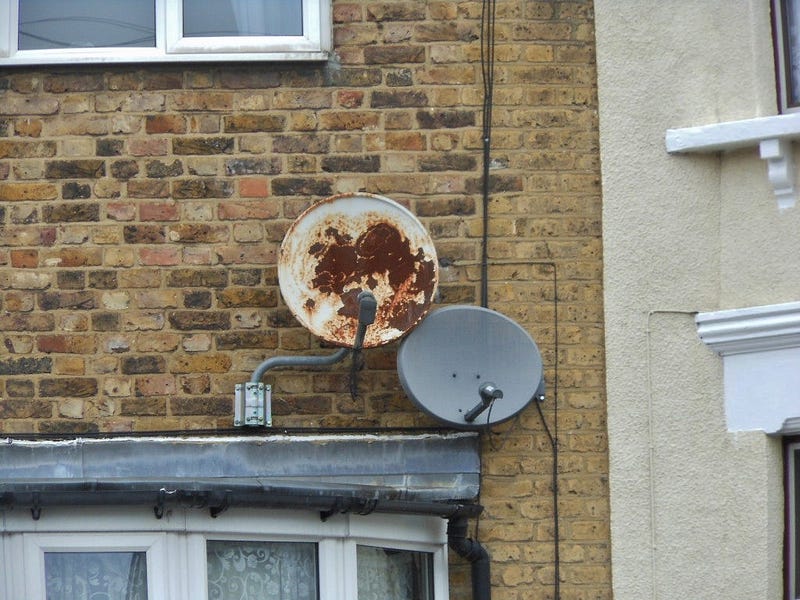# The End of an Era: The Sky Satellite Dish Retires
Written on
The Shift from Satellite to Streaming
Recently, the broadcasting landscape witnessed a pivotal change with the announcement that Sky is discontinuing the installation of satellite dishes. This marks the end of an era for a company that has been a household name for nearly four decades.
Reflecting on the past, I recall my early days at Sky, which has now evolved into a vast media and studio powerhouse under Comcast's ownership, the parent company of NBC and Universal. Initially, it was just one of many businesses situated in an industrial area of West London.
Sky has always been an incredible place to work, brimming with creativity and technological advancements. I was part of the Sky News team, where we revolutionized the coverage of rolling news—a legacy that persists today. The launch of Sky News prompted the BBC to establish a news channel of its own, thus solidifying the importance of public service content in the commercial sector. While the impact on satellite dish sales might be debatable, what is undeniable is how Sky News elevated the company's profile, ensuring that their channel was a staple in offices of influential figures across the UK and beyond.
The decision to halt satellite dish installations signifies a noteworthy chapter in media history. Sky has long been synonymous with satellite television, especially from the late 1980s until the early 2000s. Dish antennas adorned countless homes throughout the UK, but that trend is now fading.
The Future of Content Delivery
Today's focus has shifted to streaming services. With innovations like Sky Glass and the recently unveiled Sky Stream, Sky envisions a future driven by internet-based content delivery. This evolution appears to be a step forward.
Stefan Lederer, CEO of Bitmovin—a company specializing in streaming and video technology—contextualized this transition by stating to Advanced Television that the end of satellite dishes reflects the future of broadcasting, steering us closer to a fully internet-streamed world.
This change will also pose challenges for traditional broadcasters. I anticipate that the new products will feature app-based menus, further distancing viewers from traditional electronic program guides (EPGs). Consequently, broadcasters will need to enhance their streaming offerings. ITV, for instance, is poised to launch its new platform, ITVX, in the fourth quarter of 2022. The BBC, too, must improve its iPlayer as linear broadcasting becomes less relevant for many viewers.
Implications for the Broader Market
So, what does this mean for the overall market? Primarily, it indicates that apps and streaming platforms will become the primary access points for content in numerous households.
The company that successfully develops a comprehensive aggregation system, facilitating seamless access to subscription video on demand (SVoD) platforms like Disney+ and Netflix, along with major broadcasters and gaming consoles, could dominate the market.
Once upon a time, satellite dishes were derided as unsightly, particularly by non-Murdoch tabloids. Now, however, it’s the array of devices cluttering my living room that have become the real eyesores. A single device to manage all functionalities would surely be a significant market hit.
